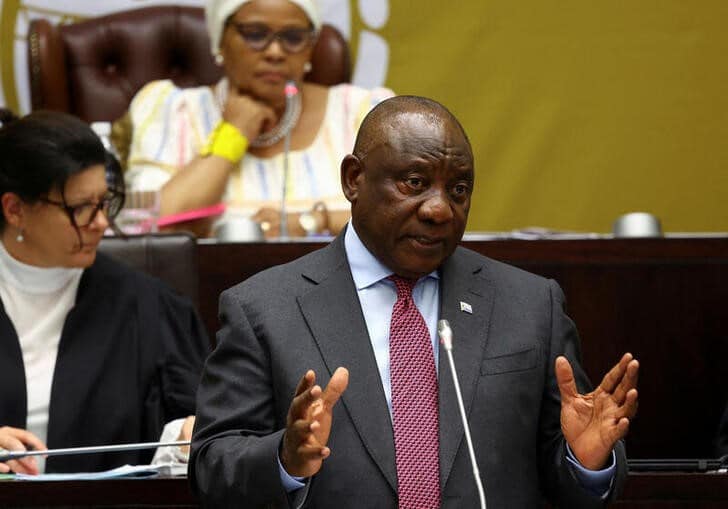
CAPE TOWN, Dec 1 (Reuters) – South African President Cyril Ramaphosa delayed an appearance in parliament on Thursday to answer lawmakers’ questions, requesting time to consider a panel report that found preliminary evidence he may have violated his oath of office.
The panel was appointed by the speaker of parliament to look into whether Ramaphosa should face an impeachment process after millions of dollars in cash were allegedly stolen from his private farm in 2020.
Ramaphosa has denied any wrongdoing and has not been charged with any crimes.
Parliament said in a statement the presidency had written to the chairperson of South Africa’s upper house of parliament requesting the postponement, noting the panel’s recommendations had “implications for the stability of the country”.
Ramaphosa asked for space to “carefully consider the contents of the report and the next course of action to be taken”, and the National Council of Provinces chairperson acceded to the request for a delay, the statement read.
The panel’s findings come less than a month away from an elective conference that will decide if Ramaphosa gets to run for a second term on the governing African National Congress’s (ANC) ticket in 2024 polls.
An ANC spokesman did not answer his telephone when called by Reuters seeking comment.
On Wednesday, after the report was published, Ramaphosa’s office reiterated a statement he made in his submissions to the panel denying he had violated his oath of office or that he was guilty of any of the allegations made against him.
The chances of impeachment are slim given the ANC’s dominance of parliament, where it holds 230 seats, about 58% of the total, and typically votes along party lines. Impeaching a president requires a two-thirds majority in the lower house of parliament.
The panel’s recommendations are not binding on parliament. This would be the first time a so-called Section 89 process would be used since its adoption in 2018 as an initial step towards removing a sitting president of South Africa.
If lawmakers decide to forge ahead with the process, the next stage would be the establishment of an Impeachment Committee with far greater powers. This Impeachment Committee has the power to recommend that the president be removed from office.
(Reporting by Wendell Roelf and Alexander Winning; Editing by Olivia Kumwenda-Mtambo, Robert Birsel)

